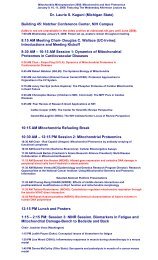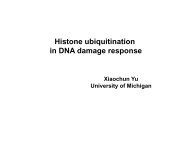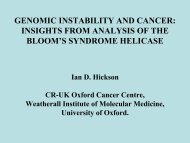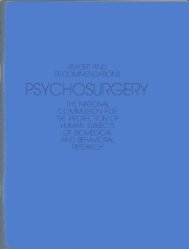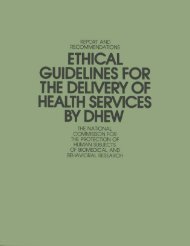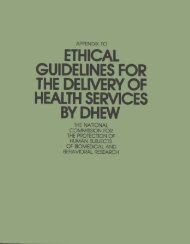RESEARCH ON THE FETUS - National Institutes of Health
RESEARCH ON THE FETUS - National Institutes of Health
RESEARCH ON THE FETUS - National Institutes of Health
Create successful ePaper yourself
Turn your PDF publications into a flip-book with our unique Google optimized e-Paper software.
IV.<br />
LEGAL ISSUES<br />
Papers on the legal issues involved in research on the fetus were prepared<br />
for the Commission by Pr<strong>of</strong>essor Alexander M. Capron, University <strong>of</strong> Pennsylvania<br />
Law School, and Assistant Dean John P. Wilson, Boston University School <strong>of</strong> Law.<br />
Both papers are structured, at least in part, according to categories <strong>of</strong> research,<br />
that is, whether the research is therapeutic or nontherapeutic, whether the fetal<br />
subject is viable, nonviable or dead, and whether it is inside or outside the<br />
uterus. The interests <strong>of</strong> the fetus at different stages <strong>of</strong> development are balanced<br />
against the interests <strong>of</strong> other parties, and the protection <strong>of</strong> fetal interests<br />
is addressed in discussion <strong>of</strong> appropriate consent requirements. A summary<br />
<strong>of</strong> both papers follows.<br />
The Dead Fetus. The Uniform Anatomical Gift Act (UAGA), which has been<br />
adopted in all fifty states and the District <strong>of</strong> Columbia, permits research on<br />
the dead fetus and the products <strong>of</strong> conception, provided consent has been given<br />
by either parent and the other parent has not objected. Pr<strong>of</strong>essor Capron states<br />
that the UAGA should be read in the context <strong>of</strong> common law requirements on consent;<br />
thus, the authorization should be "informed" and "voluntary." In the latter<br />
regard, consent should not unnecessarily be sought immediately before or after<br />
an abortion. Dean Wilson suggests that it is wise to require the consent <strong>of</strong><br />
both parents.<br />
Aside from the UAGA, Pr<strong>of</strong>essor Capron points out that the statutes <strong>of</strong><br />
five states presently impose varying degrees <strong>of</strong> restriction on research on the<br />
dead fetus (Massachusetts, South Dakota, Illinois, Indiana, and Ohio); all <strong>of</strong><br />
these restrictions apply only to the products <strong>of</strong> induced and not spontaneous<br />
abortions. Other laws that might affect research on the dead fetus are the grave<br />
robbing statutes, which would apply only when the consent required by the UAGA<br />
has not been obtained. As a matter <strong>of</strong> medical practice, however, maternal consent<br />
is not generally sought for postabortion examinations. (Both authors note<br />
and discuss a pending Massachusetts case.)<br />
25



